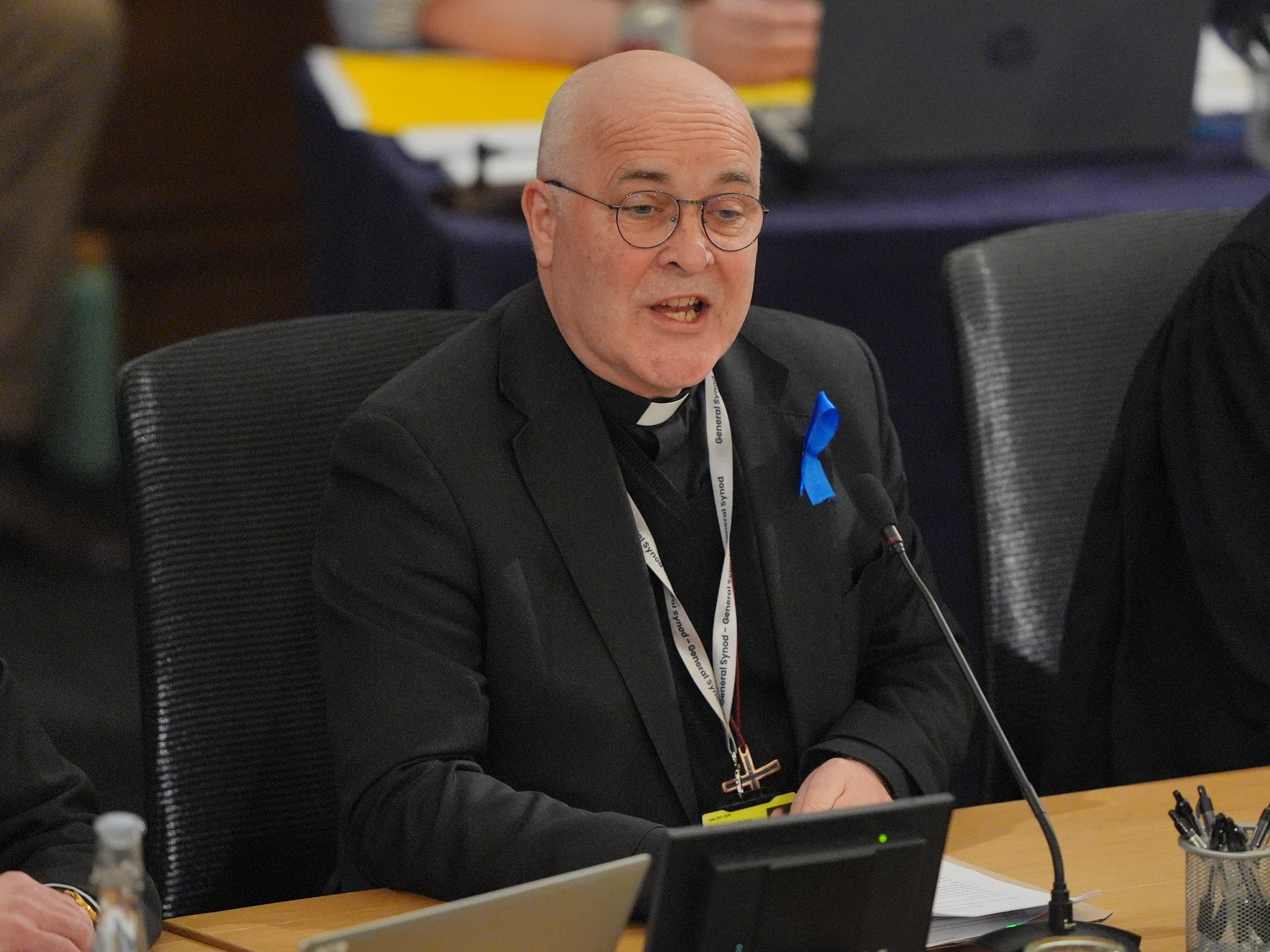Power needs to be taken away from “secretive, self-protective” bishops, the Church of England has been told ahead of a crucial vote on plans to overhaul how abuse complaints are dealt with.
The C of E’s ruling body, the General Synod, opened this week with a failed mutiny to bar the Archbishop of York, the acting head of the church, from addressing members.
Addressing members on Tuesday, Minister William Harwood said the culture needed to change at the very top and accused the “secretive, self-protective house of bishops” of wanting to “maintain their power base”. He told Synod that the senior group of bishops needed “wholesale route and branch change”.
Reverend Harwood commended the Bishop of Newcastle Helen-Ann Hartley for being a lone public voice criticising acting head of the C of E Archbishop of York Stephen Cottrell. She has accused Archbishop Cottrell of being the “wrong person” to be leading the Church.
The Church is looking to completely overhaul its safeguarding procedures and the 500 Synod members are being asked to vote on two new options on Tuesday.
The meeting of the church’s parliament comes at a particularly tense time amid an ongoing fallout from an inquiry into historic allegations of abuse.
The Archbishop of Canterbury Justin Welby resigned in November over a damning report about the abuse of children and young men perpetrated by barrister John Smyth, and Archbishop Cottrell has faced calls to also step down over his handling of separate allegations.

Debate on the safeguarding proposals opened on Tuesday with lay member Sam Margrave angrily accusing the chair of wrongly removing his proposal to vote on full independence, saying it was a “disgrace”.
Peter Howell-Jones, Dean of Blackburn, told members that the C of E needed to “stop trying to control something which is beyond our ability”, adding: “We must give away power that we have abused and allow safeguarding processes…to be properly assessed by those who are experts in the field, outside the church.”
Dean Howell-Jones backed the second proposed option, known as option four, which would see all safeguarding officers currently working in dioceses, cathedrals, and the national church transferred to work for a new independent organisation.
This is backed by survivors of abuse and was supported by Labour MP Marsha de Cordova, church estates commissioner, who told Synod: “I am clear that this must be a watershed moment for the Church to change its culture and its approach to safeguarding, as these failures must never happen again.”
Ms de Cordova added: “This assembly must show parliament and the public that the Church is fully committed to change.”
The other proposal, known as option three, would see most national staff move to a new non-church watchdog, but other diocesan and cathedral officers remaining with their current church employers.
Both options would see their safeguarding work scrutinised by a second external body.
Reverend Jonathan Gibbs backed option three, which he said would have a better chance of changing the culture within the Church as safeguarding officers would be more connected to institutions. Canon Shayne Ardron said that option three would help “change culture from the inside”.
Reverend Canon Valerie Plumb said she felt unsafe as a priest and a woman in the Church of England and urged members: “Real and effective action must be taken and taken now”.

